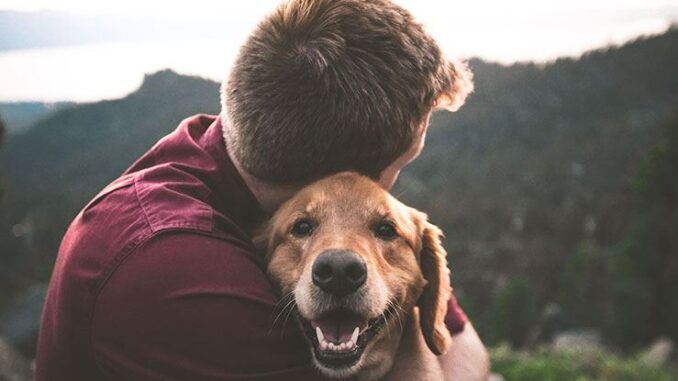
Photo Credit, Google Images
There is a natural connection between humans and animals.
Many people choose to have pets especially during the COVID pandemic since most people are working from home and have more time on their hands. Having a pet also comes with great responsibility as the pet relies on you for everything. It is important to prepare yourself for a long time commitment when getting a new fur friend.
Photo Credit, Google Images
Here are some benefits of having a furry friend:
They ward off feelings of loneliness
Although pets don't’ speak our language, pets still stimulate communication and interaction. They make us feel more secure and protected.
They help with Mental Health
If someone is depressed they usually don’t want to do much but when you have a pet at home you're obligated to take responsibility which will then prevail over your lethargy of depression. Also, most people believe that having a pet is the best medicine.
Pets are stress relievers
After a stressful day there is nothing better than relaxing with your furry friend. Spending time with them either by going for a walk, playing with toys or simply relaxing together is sometimes what we all need.
Pets make us have more responsibility
Pets depend on us for everything and this makes us more responsible knowing we have someone at home waiting on us.
They help us socialize
Taking your dog on a walk creates a great opportunity to meet some new people. Taking your dog to a dog park lets you socialize with other dog owners and have a great conversation.
Many animals are used as therapy coping techniques to help people with mental health disorders such as depression and anxiety. Psychology Today reports on a study conducted by a Psychiatrist at the University of Pennsylvania who measured what happens physically to a person when they pet a dog. He found the person’s blood pressure lowered, muscles relaxed, and heart rate slowed down. There are many mental health benefits of petting an animal. In recent times it is becoming more popular to use pets as a type of therapy. Pets used are typically dogs but can also be cats, horses, pigs and even monkeys if that is what is shown to help the person dealing with mental health issues. Paws for people claims there are many mental health benefits of having pets including reducing anxiety and depression, easing loneliness, providing a distraction from negative thoughts and actions, and providing comfort and a sense of accountability to the owner who is responsible for their care. Having a sense of accountability and responsibility are linked to giving motivation to people who would otherwise lack motivation.
Photo Credit, Google Images
Let's take a look at some of the mental health disorders that pets can help with.
Bipolar Disorder
When someone is experiencing Bipolar disorder, as defined by the National Institute of Mental Health, they can have periods of extreme highs and extreme lows. This is called ‘manic depression’ with mania being the high times of unpredictable behavior and impulsive behavior. Every Day Health reports people with Bipolar Disorder can truly benefit from having a pet. Because people with Bipolar Disorder can feel disconnected from reality at times, pets can help them distinguish between what is real and what is part of their mania.
PTSD
Post Traumatic Stress Disorder and is defined by the National Center for PTSD as a mental disorder that is formed after a person experiences a traumatic event. Depending on the breed, dogs are often beneficial for providing therapy to those suffering from PTSD.
Anxiety
The Anxiety and Depression Association of America defines anxiety as the persistent worry when there is no real cause for worry or anxiety. This constant worry can also turn into panic attacks, which are terrifying for the person dealing with this disorder. Anxiety.org reports on studies that support the idea that pet therapy animals can truly benefit someone suffering from anxiety by reducing stress levels and causing mental distractions for the person to focus on rather than them focusing on their own worry.
Photo Credit, Google Images





Be the first to comment